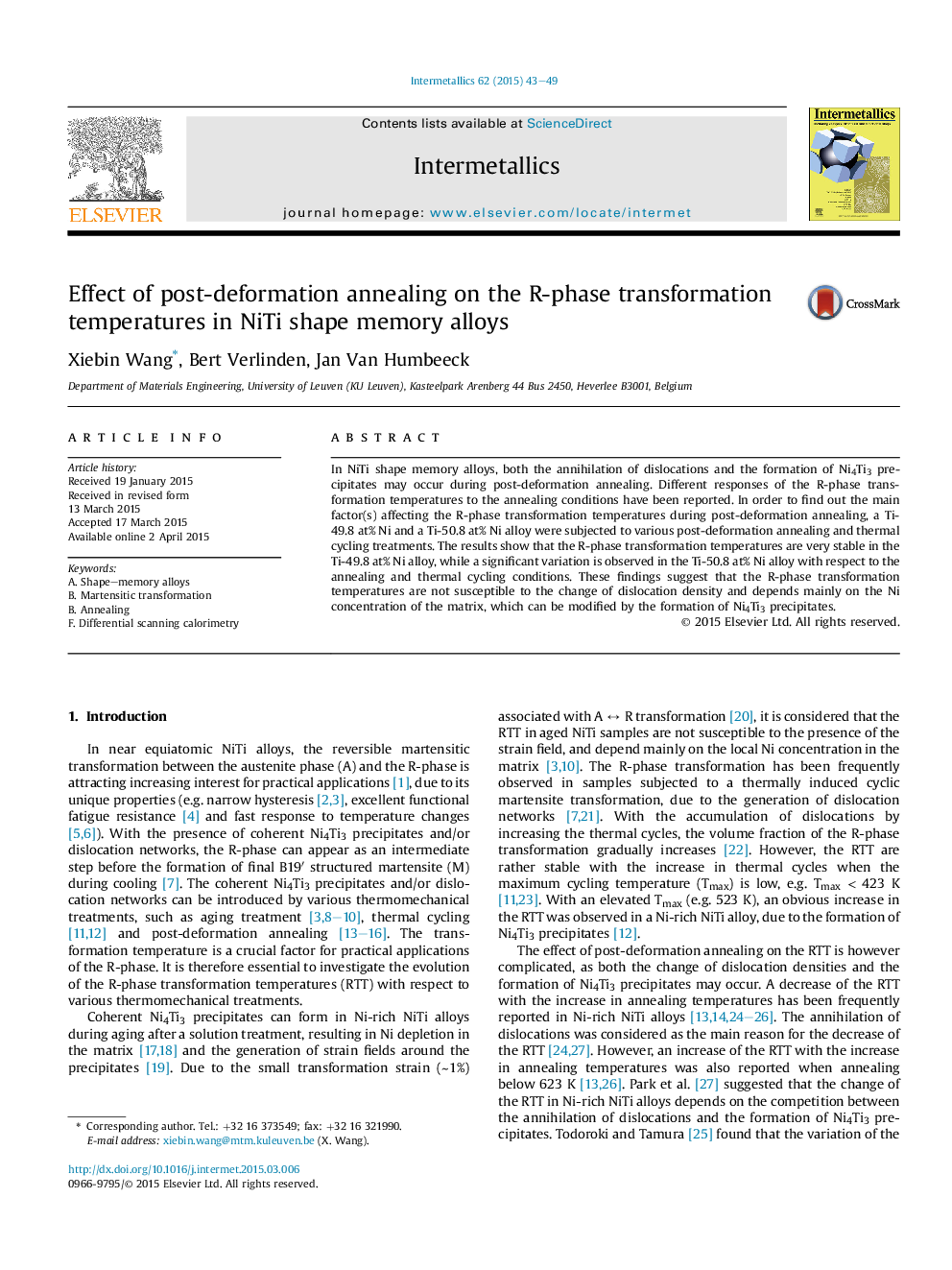| Article ID | Journal | Published Year | Pages | File Type |
|---|---|---|---|---|
| 1599888 | Intermetallics | 2015 | 7 Pages |
•The effect of annealing on the R-phase transformation temperature is studied.•The R-phase transformation temperature depends mainly on the Ni content.•The R-phase transformation temperature is less affected by the dislocation density.
In NiTi shape memory alloys, both the annihilation of dislocations and the formation of Ni4Ti3 precipitates may occur during post-deformation annealing. Different responses of the R-phase transformation temperatures to the annealing conditions have been reported. In order to find out the main factor(s) affecting the R-phase transformation temperatures during post-deformation annealing, a Ti-49.8 at% Ni and a Ti-50.8 at% Ni alloy were subjected to various post-deformation annealing and thermal cycling treatments. The results show that the R-phase transformation temperatures are very stable in the Ti-49.8 at% Ni alloy, while a significant variation is observed in the Ti-50.8 at% Ni alloy with respect to the annealing and thermal cycling conditions. These findings suggest that the R-phase transformation temperatures are not susceptible to the change of dislocation density and depends mainly on the Ni concentration of the matrix, which can be modified by the formation of Ni4Ti3 precipitates.
